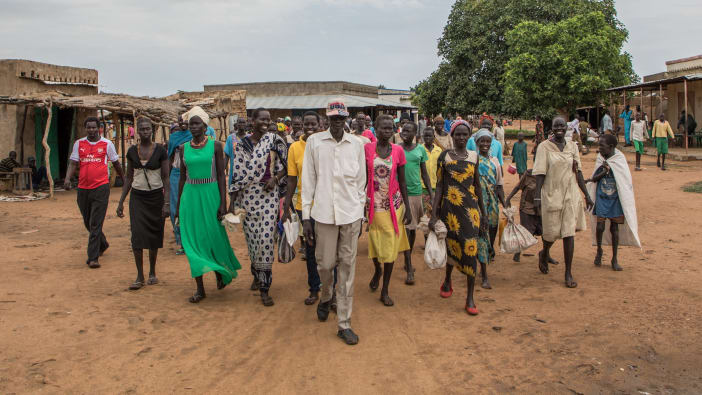Read Psalm 42
Condry Ziqubu’s song Yellow Mealie Meal was written to remind people how God saved them from starvation and malnutrition when, in the 1980s, yellow maize flour became the staple food for many households across southern Africa. The flour was introduced by governments due to severe droughts and food shortages in the region.
In the song, Condry is heard lamenting, ‘Children are crying, there is no rain,’ then he concludes by calling everyone to pray together:
Come on everybody let’s get together…
Let’s be down on our knees
We need you Lord, we need you right now
Save the world, save your people!
For nearly five years, yellow mealie meal was one of my staple foods when I lived in a refugee camp in Tanzania. Other foods were soy flour, split peas and sunflower cooking oil. Interestingly, together with a bar of soap we were given, they were all yellow!
We often lamented and cried out for deliverance from hunger and the monotony of these rations. Eventually, God answered our prayers and the situation improved.
Lament and praise
In the Bible, lament is a common language of praise during suffering.
In Psalm 42:3 the writer cries out, ‘My tears have been my food day and night, while people say to me all day long, “Where is your God?”’ Then, after an outpouring of grief, the psalmist concludes: ‘I will yet praise him, my Saviour and my God’ (Psalm 42:11).
In the refugee camp, in many ways tears were our ‘daily bread’, and people ridiculed us for holding on to our Christian faith. But lament became for us an act of worship in which we could offer to God our brokenness and our pain.
The Bible teaches us that it is never wrong to cry out to God. God hears us in our distress and welcomes us close: ‘Come to me, all you who are weary and burdened, and I will give you rest’ (Matthew 11:28).










